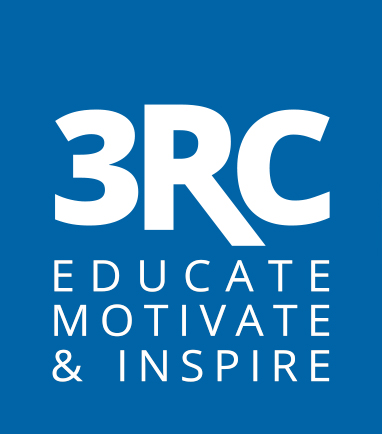By Erin Palmer
Tough-Love Tips for Getting Hired After Varsity/College
Consider me a cautionary tale. I was one of many misguided university graduates who underestimated how difficult it would be to find a job after graduation. I didn’t expect to collect my diploma and walk into a sea of head-hunters waiting to hire me, but I had no idea that it would take me a year after graduation to find a job in my field.
I thought I was doing things right. I took my classes really seriously, got good grades and built relationships with my professors. I paid my own way through school, so I had to balance a full-time job with being a full-time student. Unfortunately, my crazy schedule left no time for internships (or sleep).
Now my younger sister is in university, and I’m determined to make sure she doesn’t go through the same post-varsity struggles that I did. Varsity students, please heed the following advice. Your wallet and your sanity will thank me later.

Don’t wait until graduation to start your job search
It sounds obvious, but this is a common mistake. I told myself I was too busy, which was true. But I should have made the time.
Job-hunting is a long process that takes patience. In fact, when I finally got an interview for my current job, it was after months of checking the company’s website for an appropriate opening. I knew I wanted to work here, so I kept checking until a position opened up that I was qualified for. Start making your post-college career plans as soon as possible.
Show off your skills
A resume can only say so much, particularly when you don’t have a lot of experience yet. Consider starting a blog, creating a website or making a video to show off your specific talents. Listing “strong writing skills” on my resume isn’t nearly as effective as showcasing those skills with particular examples of my work.
To really capture a company’s attention, try making your site or blog tailored specifically to your dream job. This will give you an opportunity to show how much you’ve researched the company and the requirements of your desired position.
For example, if you want a technical writing position, put together a sample proposal as if you already had the job. This not only shows what you can do, but also gives the company examples of the ideas that you would bring to the position.
Be an active intern
The “go get me some coffee” internship stereotype exists for a reason. Just because you’re assigned menial tasks doesn’t give you an excuse to be passive. Ask for more difficult tasks. Offer your ideas. Find out about what the company’s hiring process is like. Talk to your superiors and seek out a mentor. Get descriptions of entry-level positions within the company and work towards gaining the necessary skills to land them.
One of my friends from varsity had a company create a position for her after graduation because they were so impressed with her as an intern. It isn’t enough to land an internship. Make yourself indispensable.
Apply high
One of my favourite college professors advised me not be afraid to “apply high.” She said this after I complained that every job I wanted required years of experience that I did not yet have. She told me just because a job has specific requirements didn’t mean I shouldn’t try for it if I believed I was capable of performing.
I admit, I thought my resume would get thrown away as soon as employers realized that I didn’t meet every requirement. Yet when I found out about the opening for my current position, I went for it despite my minimal experience. I wrote a strong cover letter that got my resume through the door. I came to the interview confident and well-prepared. And even though I didn’t meet each job requirement on paper, I still got the job.
As a newbie to the workforce, you have to be ready to prove that you can do it — but it’s well worth the fight.
Network here, there and everywhere
Though the job market isn’t ideal right now, new graduates have an incredible array of networking tools at their disposal. Use every single one of them. Maximize every possible resource. Streamline all of your social media pages to reflect your job search. Use your Twitter, LinkedIn and Facebook contacts to connect to new people in your field or people that work at companies that you’re interested in.
Don’t make the mistake of thinking that networking ends on the computer. Talk to any and every one you can that might be able to help you. Use your internship, your job, your professors and friends of your mom. Job-hunting is not the time to be timid.
Be a realistic dreamer
People always advise “do what you love,” and students often apply this philosophy when deciding what to study. The truth is, certain majors are more likely to lead to a job. I believe that people should chase their dreams, but I’m also a realist. If you major in esoteric knowledge, your job options will be far more limited than those of someone who majors in accounting. You have to figure out a way to make your dream job work in the real world.
I majored in writing, so I’m no stranger to disdainful comments about my job prospects. If I had a dollar for every person who made a writing major joke to me, I wouldn’t even need a job; I could retire early and work on my novel.
Though fiction is my one true love, I took every possible writing class while I was in college. By graduation I had experience in fiction, nonfiction, technical writing, journalism, publication editing and design, writing for advertising, writing for public relations and writing for broadcast. I wanted to be as well-rounded as possible to increase my job options.
Though I now write in a corporate environment, I love my job. I might not be on the shelves of Barnes and Noble (yet), but I am getting paid to write. I am pursuing my dream and paying my bills at the same time. It might have taken a year after graduation to get here, but I’m here now.
The lesson: Don’t wait for the perfect job to land in your lap. Work hard, network and don’t give up on your dreams — just be smart about them.
Erin Palmer works as a writer and editor with Villanova University’s online programs. Villanova offers programs such as PHR certification prep courses, in addition to an HR masters online degree program. Erin can be reached on Twitter @Erin_E_Palmer.
Article by Brazen Life

